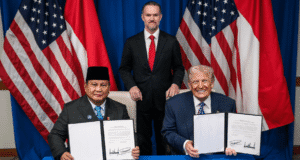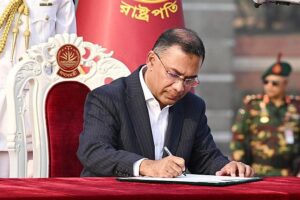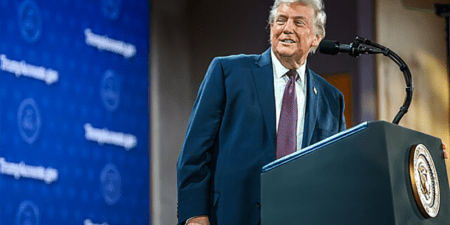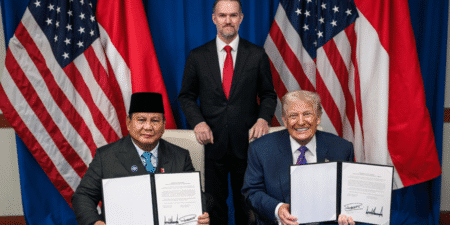
An Early Election Looms in Unsettled Thailand
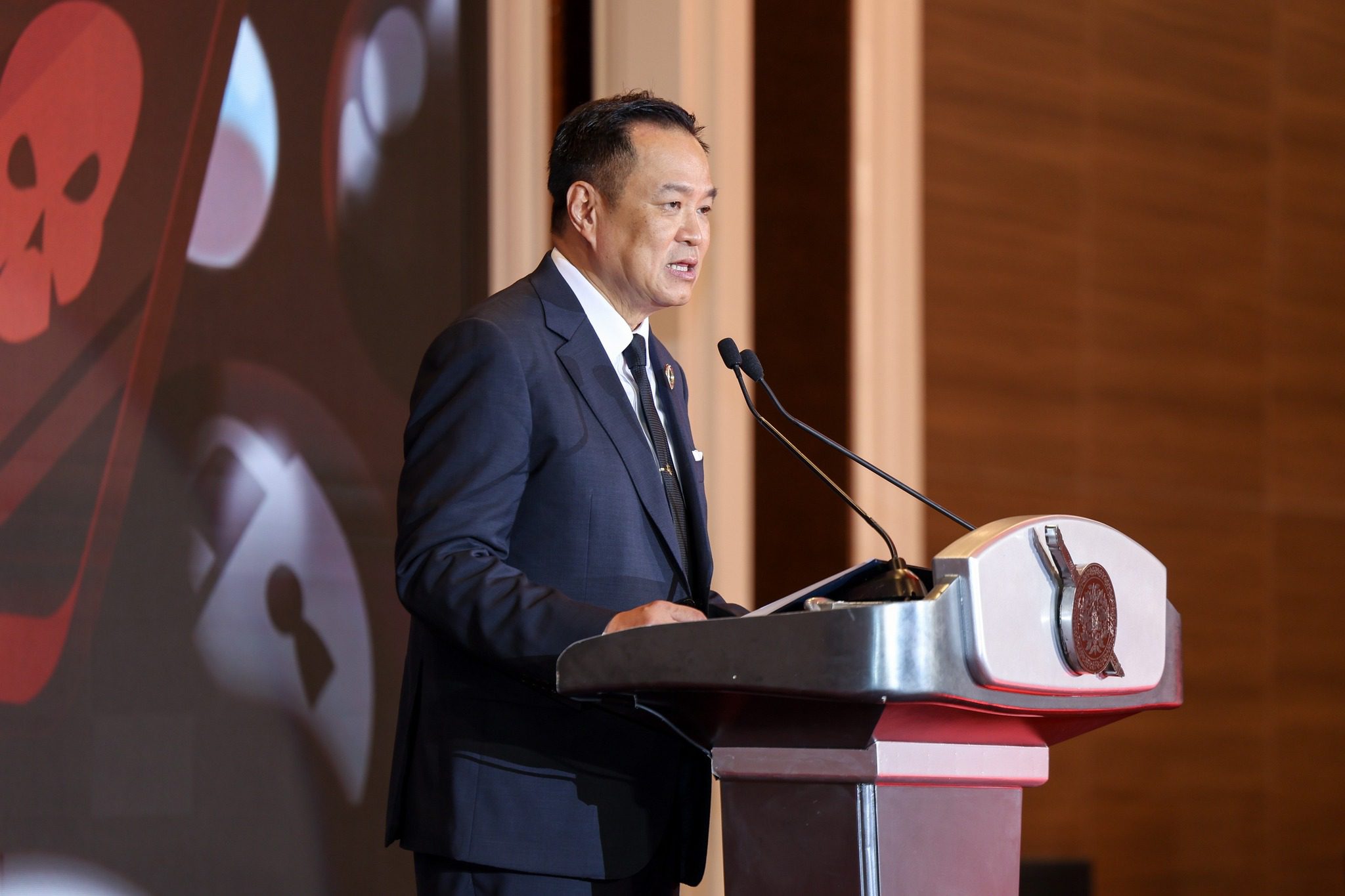
BGA Senior Adviser Thitinan Pongsudhirak wrote an update to clients on Thailand’s political environment.
Thailand’s political environment remains unruly and unsettled. The minority government of Anutin Charnvirakul, the third prime minister from the third largest-winning party since the May 2023 election, is hard pressed to stay in office beyond the four-month “memorandum of agreement” (MOA) between his Bhumjaithai Party (BJT) and the People’s Party (PP), the largest camp in the National Assembly. As pressure mounts from a planned no-confidence motion in December and explosive corruption allegations against cabinet members related to scam networks and cyberfraud, Anutin’s hand will likely be forced to bring forward the election from the anticipated end of March next year.
Anutin took the helm as a stop-gap administration following the dissolution of PP’s predecessor Move Forward Party and the removal of second-largest poll winner Pheu Thai Party’s Srettha Thavisin from the premiership in August 2023 and Paetongtarn Shinawatra a year later. Despite the four-month MOA with PP, Anutin and his Cabinet members — comprising old-style, unsavory politicians from provincial patronage networks — appear set to stay in office as long as they can offer pork-barreling projects ahead of the next poll, which is due by May 2027.
Although the finance, commerce and energy portfolios were filled by technocrats, the lion’s share of cabinet posts went to the Anutin-led BJT, overseen by party patriarch Newin Chidchob, along with coalition allies, Kla Tham and United Thai Nation parties. The BJT-PP deal was that Anutin would steer parliamentary proceedings and see through charter amendments to pave the way for a new constitution by holding a referendum on its drafting structure concurrently at the next poll.
But the going got tough quickly for Anutin as he settled into the premiership. While a wide array of his Cabinet ministers was previously embroiled in graft scandals and criminal activities, including Deputy Prime Minister and Agriculture Minister Thamanat Prompow’s earlier conviction and jail term in Australia on drug-trafficking charges, the revelations and allegations of regional cyber-crimes and scam center networks centered in Cambodia put Anutin on the defensive. As more facts surrounding the labyrinthian cross-border multibillion-dollar transnational criminal ring surfaced, more questions went unanswered. Deputy Finance Minister Vorapak Tanyawong, an Anutin ally, was forced to resign unceremoniously due to his link with BIC Bank in Cambodia, founded by controversial Cambodian businessman Yim Leak.
It turned out that the Vorapak case was just the tip of the iceberg as a web of cyberfraud, human- and drug-trafficking and money-laundering among cyber-criminal networks became exposed. Chen Zhi of the Prince Group and Hun To of the Huione Group were fingered as two of the leading masterminds of these scam networks, along with Benjamin Mauerberger, allegedly the key conduit among these criminal gangs. The United States Treasury Department confiscated nearly $15 billion of the Prince Group’s and Chen Zhi’s crypto and other financial assets on cyberfraud, human trafficking and money-laundering charges. The United Kingdom, Korea, Taiwan and Singapore have similarly cracked down on them.
The Thai connections to these obscure figures and business outfits appear wide and deep. For example, the Prince Group rented a unit at Anutin’s family-owned Sino-Thai office building. Mauerberger’s photos with senior Thai officials made the rounds on social media. Despite declaring what comes across as a ceremonial “war” on scam networks, Anutin appears conspicuously unenthusiastic in going after the criminal networks. Thailand’s oversight agencies for checks and balances from the Securities and Exchange Commission and the Anti-Money Laundering Office to the Anti-Corruption Commission and the Constitutional Court have been muted and lackluster in response. The announcement of the Queen Mother’s passing October 24 and a consequent national mourning generated news flows away from the scams but only temporarily.
Now with Julapun Amornvivat as new leader after Paetongtarn and still recovering from having been outflanked by Anutin’s BJT, Pheu Thai with more than 120 members of Parliament will likely file a no-confidence motion when Parliament reconvenes in December. BJT has poached and accepted defecting parliamentarians from other parties but at under a hundred its ranks are not enough to withstand a no-confidence onslaught unless PP and its 143 members of Parliament stick to the MOA. But it will be difficult for PP to stand by BJT in view of damning evidence of corruption and fraud from the scam crisis. Anutin has already hinted on several occasions that he will dissolve the lower house if a no-confidence motion looms against his minority government without enough support. Because he is constitutionally barred from calling a new election once the no-confidence motion takes effect, Anutin may have to cut short his term.
The four-month timeline pins the lower house dissolution on January 31 with a new poll on March 29, but Anutin may now have to dissolve the assembly before its next session from December 12. This would put the election date in February within the mandated 60-day window. To be sure, the ruling party is more prepared for polls in what is shaping up as a largely three-way race among BJT, Pheu Thai and PP.
Anutin has rolled out a sizeable tax relief program and a “half-half” subsidy program for low-income earners who can purchase basic goods at half price with the government picking up the remainder. As soon as it took office, BJT recalled and reworked promotion lists of senior civil servants, placing its favorites and loyalists in key positions of authority for electoral advantages and supervision over provincial purse strings. It also put the two red-hot fraud cases of BJT collusion and manipulation of senate elections and encroachment of public land on the legal backburner.
Pheu Thai is trying to regain its footing, and PP faces a dilemma: whether to stick with the MOA for constitutional reform — and therefore with BJT — or ditch the ruling party and delay charter change due to the scams crisis. BJT will likely rely on the oversight agencies and its establishment backers to outmaneuver PP and Pheu Thai in an effort to stay in power after the poll. Business planners with stakes in Thailand should continue to work with line agencies to stay in tune with policymaking dynamics and start to anticipate a post-poll coalition government formation. BGA will keep clients up to date and atop the fray as they navigate Thailand’s policy terrain.
If you have comments or questions, please contact BGA Senior Adviser Thitinan Pongsudhirak at thitinan@bowergroupasia.com or BGA Thailand Managing Director Teerasak “Art” Siripant at tsiripant@bowergroupasia.com.
Best regards,
BGA Thailand Team

Dr. Thitinan Pongsudhirak
Senior Advisor

















